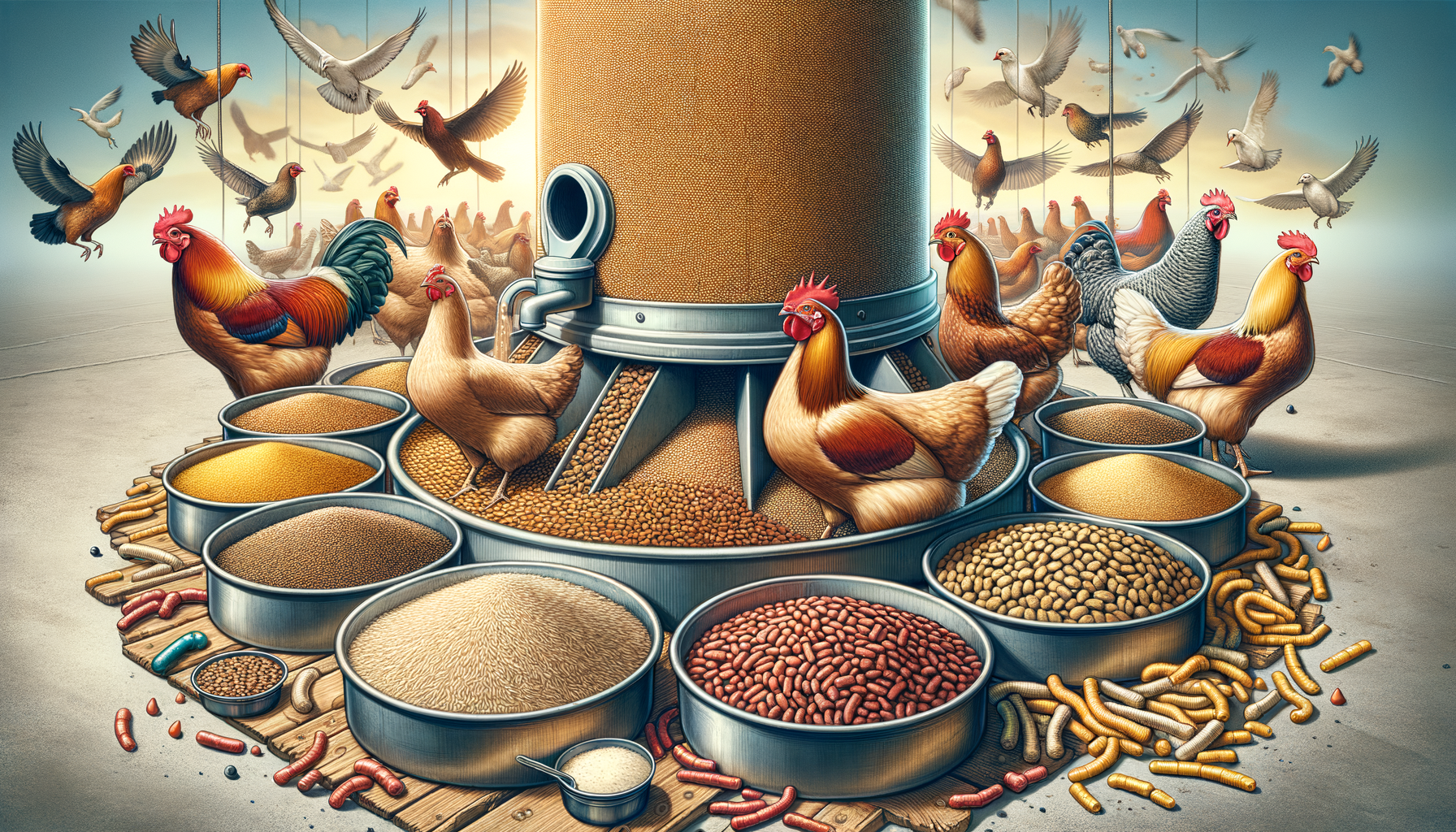
Discover bulk feed options, nutritional tips, and more to keep your chickens healthy.
The Importance of Choosing the Right Poultry Feed
Feeding poultry the appropriate diet is crucial for their growth, health, and productivity. The right feed not only supports their physical development but also enhances their ability to produce eggs and meat efficiently. Understanding the nutritional needs of poultry and how different feeds meet these needs is essential for anyone involved in poultry farming.
Feeding poultry is not just about providing any food available; it is about offering a balanced diet that includes all necessary nutrients. These nutrients include proteins, carbohydrates, fats, vitamins, and minerals. Each of these plays a significant role in the growth and health of the birds. For instance, proteins are essential for growth and egg production, while vitamins and minerals support metabolic processes and immune function.
Poultry feeds are typically categorized as starter, grower, and layer feeds, each designed to meet the specific needs of birds at different life stages. Choosing the right feed at each stage ensures optimal growth and productivity. Moreover, the quality of feed directly impacts the health of poultry, making it vital to select feeds that are clean, fresh, and free from contaminants.
Types of Poultry Feeds and Their Nutritional Benefits
There are various types of poultry feeds available, each designed to cater to specific needs of the birds. The primary types include starter feed, grower feed, layer feed, and finisher feed. Each type has its unique composition tailored to the age and purpose of the poultry.
Starter feed is high in protein content, typically around 20-24%, to support the rapid growth of chicks. Grower feed follows, with a slightly lower protein content of about 16-20%, to continue supporting growth until the birds reach maturity. Layer feed is formulated for hens that are laying eggs, with a balanced mix of protein, calcium, and other essential nutrients to support egg production and shell quality. Finisher feed, often used for meat birds, focuses on promoting weight gain efficiently.
Providing the right type of feed at the right stage of the bird’s life cycle is crucial. For example, layer feed is enriched with calcium to ensure strong eggshells, whereas starter feed is packed with protein to fuel early growth. Understanding these differences helps poultry farmers make informed decisions that enhance the health and productivity of their flocks.
Understanding Bulk Feed Options for Economical Feeding
For poultry farmers, especially those managing large flocks, purchasing feed in bulk can be a cost-effective strategy. Bulk feed options not only reduce costs but also ensure a consistent supply of feed, which is crucial for maintaining the health and productivity of the birds.
When considering bulk feed options, it is important to evaluate the storage capabilities to prevent spoilage. Proper storage conditions, such as a cool, dry place, help maintain the quality of the feed over time. Additionally, farmers should consider the nutritional quality and ingredients of bulk feeds to ensure they meet the dietary needs of their poultry.
Bulk feed purchases often come with the advantage of customizing the feed mix according to specific needs. This flexibility allows farmers to adjust the nutrient composition based on the age, breed, and purpose of the poultry. By opting for bulk feed, farmers can achieve significant savings and maintain a steady supply of high-quality feed for their flocks.
Nutritional Tips for Enhancing Poultry Health
Ensuring that poultry receive a balanced diet is vital for their overall health and productivity. Here are some nutritional tips to enhance poultry health:
- Include a variety of grains and seeds to provide a balanced mix of carbohydrates and proteins.
- Ensure adequate calcium intake, especially for laying hens, to promote strong eggshells.
- Incorporate greens and vegetables to provide essential vitamins and minerals.
- Use supplements judiciously to fill any nutritional gaps in the diet.
- Provide clean, fresh water at all times, as hydration is crucial for digestion and overall health.
By following these tips, poultry farmers can create a diet that supports the health and productivity of their birds, leading to better growth rates and higher egg production.
Conclusion: Keeping Your Chickens Healthy and Productive
Providing the right feed is a fundamental aspect of poultry farming that directly influences the health and productivity of the birds. By understanding the different types of feeds and their nutritional benefits, farmers can make informed decisions that enhance the well-being of their flocks.
Bulk feed options offer an economical way to maintain a consistent supply of high-quality feed, while nutritional tips help ensure a balanced diet. By prioritizing the dietary needs of poultry, farmers can achieve better growth rates, improved egg production, and overall healthier birds.
Ultimately, a well-fed flock is a productive flock, and by investing in the right feed, poultry farmers can ensure the success and sustainability of their farming operations.


